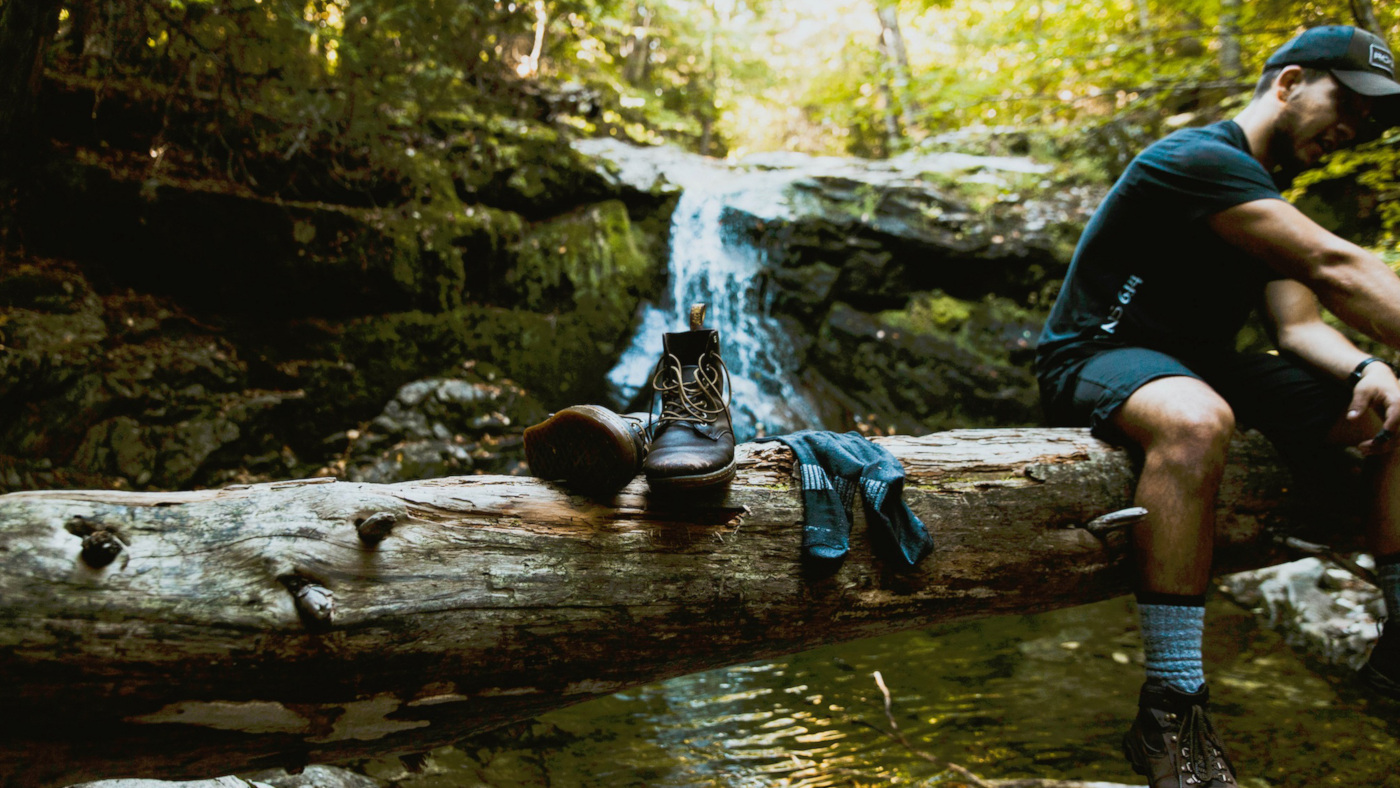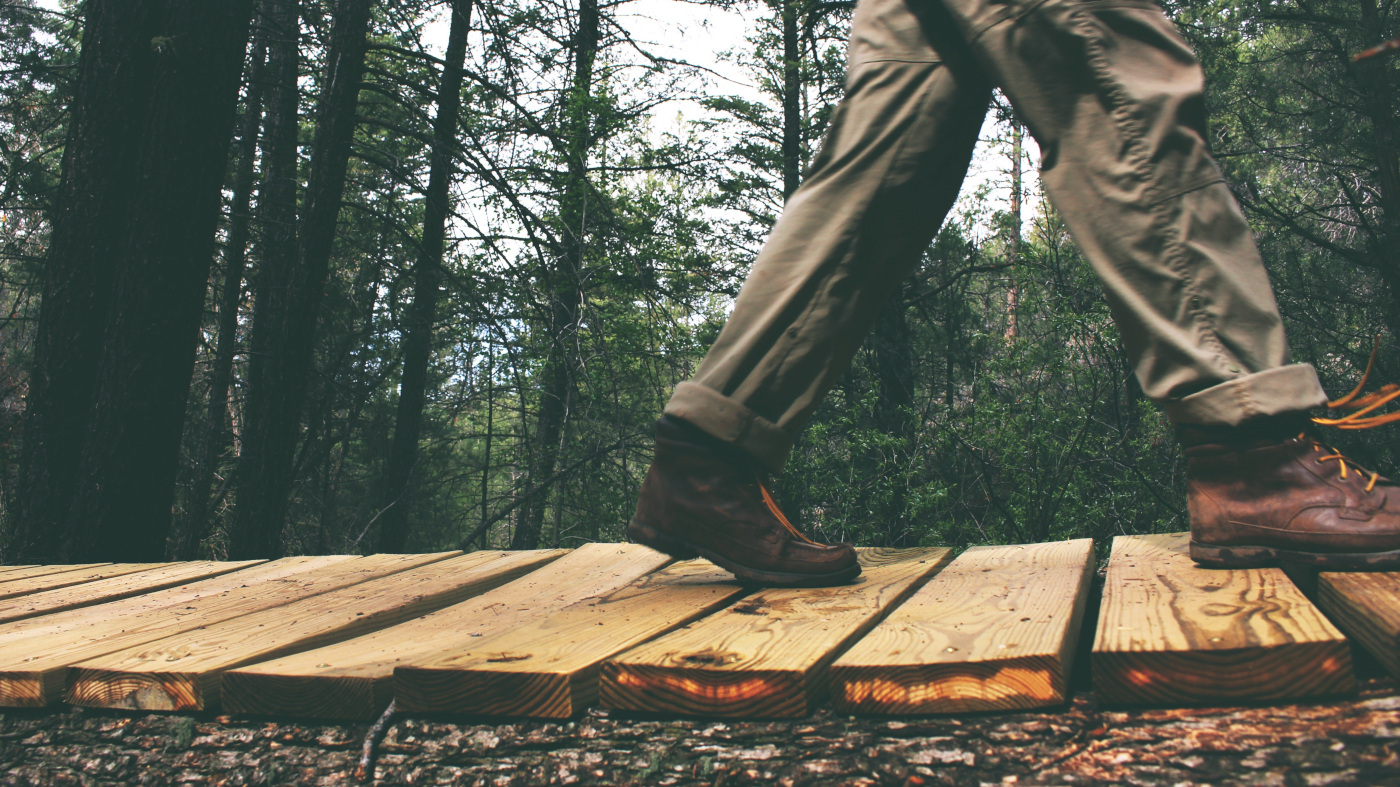Walking boots vs walking shoes: how to choose the right footwear for you
What's the difference between walking boots and shoes, and which is ideal for the type of walking you do?


When it comes to outdoor footwear, the one question we get asked time and again is, 'Should I buy walking boots or walking shoes?’ Well, there’s a pretty straightforward answer to this: if you spend a lot of time outdoors, you actually need a good pair of both. Why? For the simple reason that both types of footwear do very different jobs, and feel very different in use. This becomes apparent fast when you tackle more difficult terrain, or are out walking in hot weather or you're braving the slush and ice.
The best men's walking shoes and the best women's walking shoes are more often lighter than boots, enabling you to move faster. Shoes are also more packable, so they’re easier to take on a long haul walking holiday or backpacking adventure. There are a number of different kinds for different types of trip and trail – if you're looking for speed, you might be better off with a trail running shoe (there's a lot of crossover with walking shoes) or for vertiginous hikes, perhaps some approach shoes. However, the your standard walking shoes will start to struggle when the terrain gets really rough.
On the flip side, today's best hiking boots (and best women's hiking boots) tend to be heavier and stiffer (depending on the material they are made from), and are therefore up to the task of protecting your feet and ankles across more rugged or treacherous terrain. This is a critical concern when you're carrying heavy loads on your back, and during those trips where you're putting in some long, hard miles on the trail. Very broadly, walking shoes tend to hit lower cost points too, but they are always incredible deals to be found on hiking boots as well as shoes.
- Stay comfy with a pair of the best hiking leggings

Walking boots or walking shoes: how to choose
Walking shoes are ideal for less intense terrain, such as outdoor paths and easier ground in general. They're especially good for shorter walking trips in warm weather. Although light walking boots can be pretty breathable, similar summer walking shoes are much cooler when the heat is really on. Especially 'shandals', which are a cross-between shoes and walking sandals.
Walking boots are generally stiffer and more protective than shoes, most obviously adding several lace-holes of extra support above the ankle. Not only does this protect your ankle from bashing into rocks, it restricts extreme angles – as tiredness creeps in, misplacing a foot and turning your ankle is very easy to do. That's especially true in the mountains and off the beaten track.
When choosing which type of footwear to wear and when, you’ll be looking at a combination of the above factors. When going fast and light – even in serious alpine terrain – there are plenty of outdoor pros who recommend wearing shoes for as long as possible to minimise fatigue, then swapping to boots for the real steep stuff.
Finally, while there is plenty of room for debate in the walking shoes vs walking boots canon, as soon as winter hits the hills, shoes are highly risky, and walking boots with crampons should be firmly at the top of your list.
Get all the latest news, reviews, deals and buying guides on gorgeous tech, home and active products from the T3 experts

Walking boots vs walking shoes: stability
Stability is the elephant in the room here. A boot provides a literal platform for you to stand on, which is a vital part of walking or scrambling in rugged terrain. From jamming a boot into a gap between rocks, plunging the heel deep into scree slopes on a descent, or kicking steps into snow or wet grass with the edges, a solid boot is an essential tool in the hills. Even if you’re not going for a full B2-rated winter mountain boot, a stiff walking boot will do much of the same job.
Walking shoes offer a lighter, more flexible platform, which can be a boon on longer days and more established trails where your big challenge is fatigue, rather than terrain.
Walking boots vs walking shoes: durability
Durability is one area where modern materials have closed the gaps between walking shoes vs walking boots, with the heavier shoes and lighter boots often using similar materials such as cordura, nubuck and welded PU film technology. While these modern materials degrade faster than leather boots, they’re a fraction of the weight and don’t need a lengthy break-in period.
Often it’s the construction techniques that give away how rugged a shoe or boot is, especially where the sole attaches to the upper (the rand). On lighter shoes this is only a token gesture, while on chunkier mountain boots the rand extends right up over the foot, protecting against everything from light gravel to sharp rocks.

Walking boots vs walking shoes: comfort
To be fair, although you can find hiking boots that provide oodles of comfort from the get-go, shoes certainly have the edge in the comfort stakes. As outdoor tech improves, the range of outdoor shoes has spiked, resulting in a huge range of strong candidates.
Although as ever, check the fit agrees with your feet before talking on those hills. The best way to do this is to try your chosen walking boots or shoes on at the end of the day, when your feet are swollen.

Mark Mayne has been covering tech, gadgets and outdoor innovation for longer than he can remember. A keen climber, mountaineer and scuba diver, he is also a dedicated weather enthusiast and flapjack consumption expert.